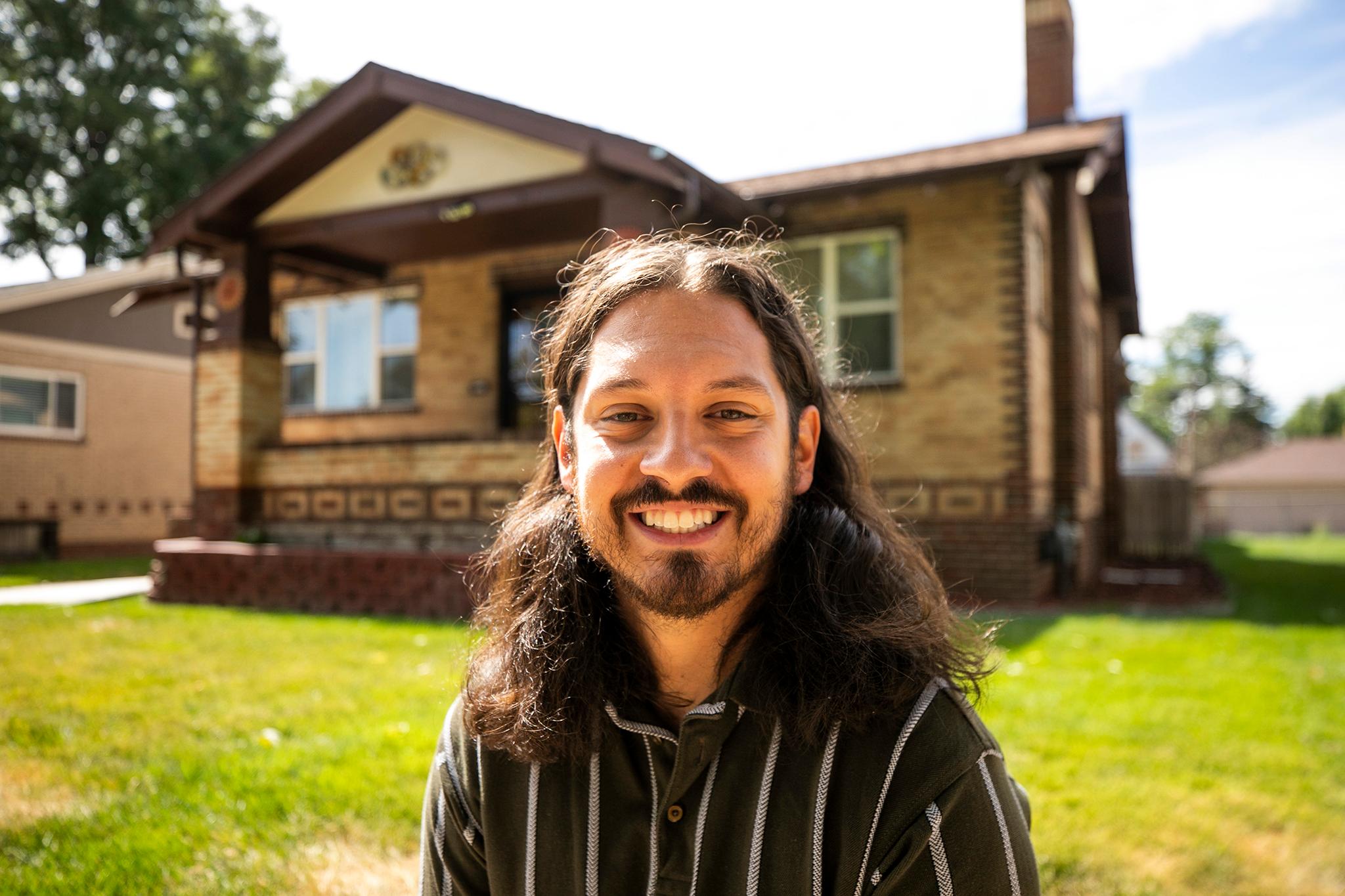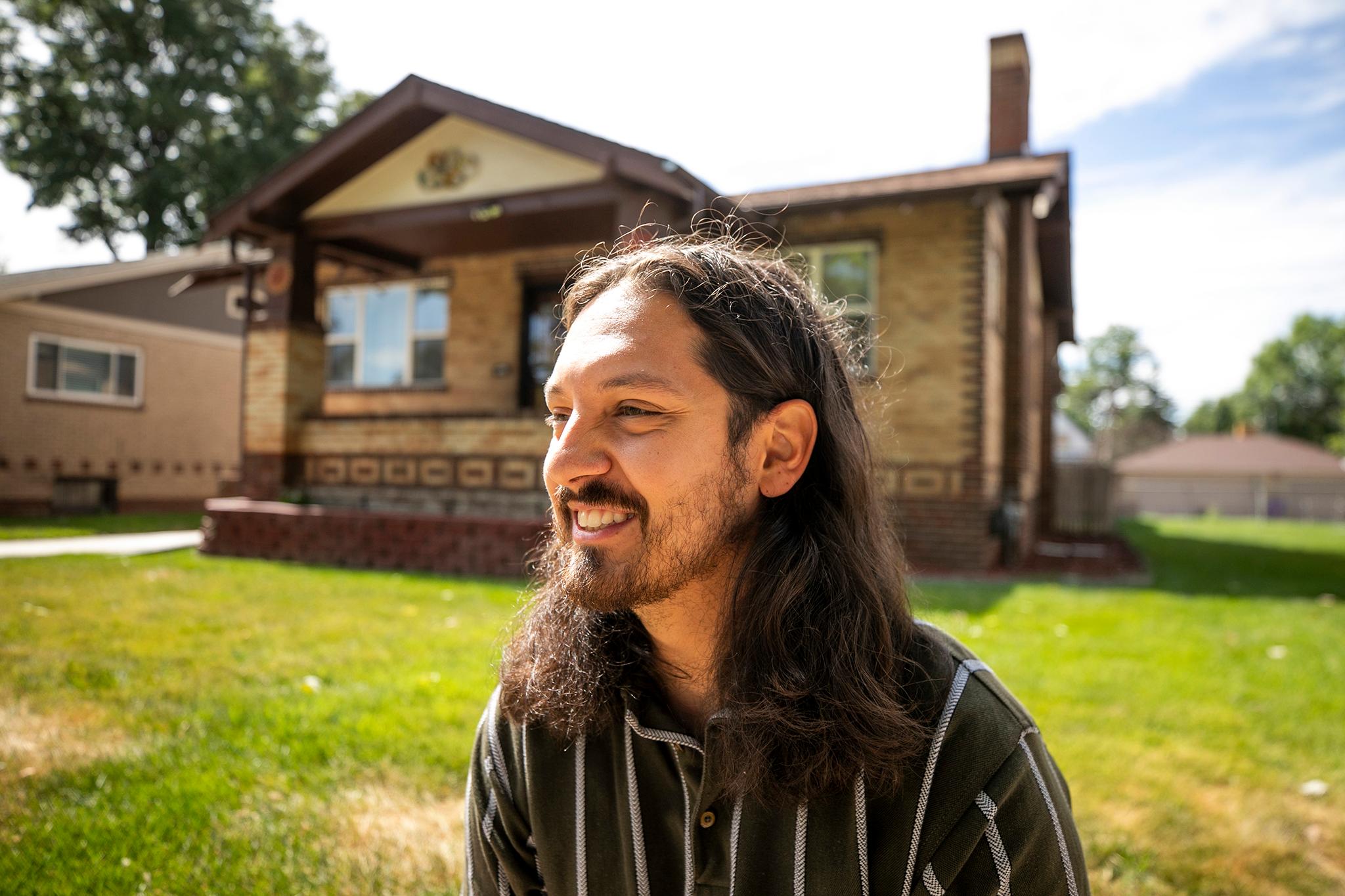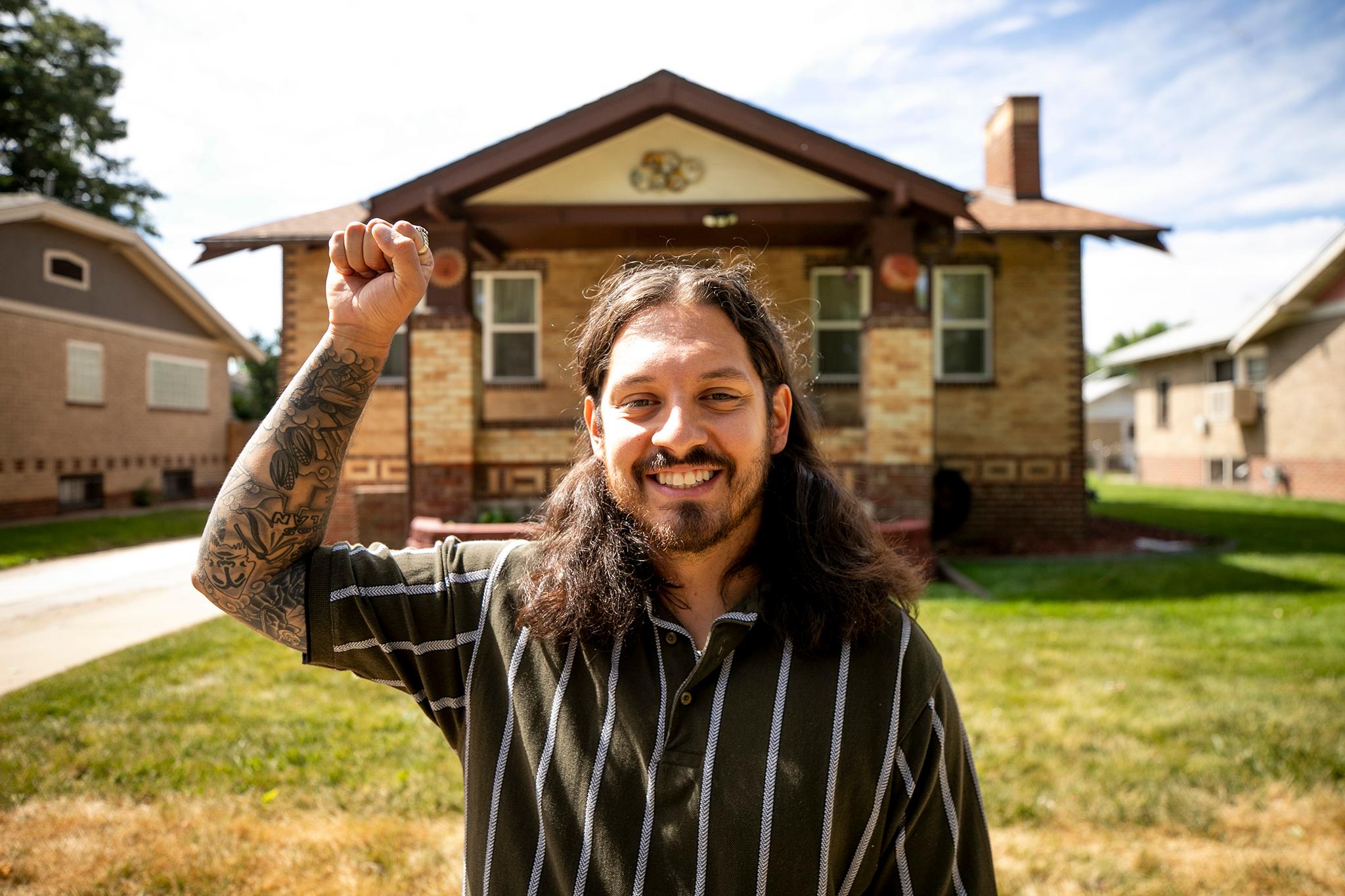Teacher and community organizer Tim Hernández officially announced that he would be running to fill the recently vacated House District 4 seat, which covers Northwest and West Denver.
"I'm from the neighborhood. I grew up here and I really care about this place," Hernández said. "I'm ready to hop in and make sure that somebody's up there championing what our students need, what our community needs and what all of us need."
HD 4 encompasses Northside neighborhoods, where Hernández grew up, such as Berkeley, Chaffee Park, Sunnyside and the Highlands. It also has Westside neighborhoods including Sun Valley, West Colfax and Westwood.
Former state Rep. Serena Gonzales-Gutierrez vacated the seat when she was elected to Denver City Council.
Hernández is an 11th- and 12th-grade ethnic and Chicano studies teacher in Aurora. He was previously a board member of the Denver Classroom Teachers Association, the city's teachers' union.

Hernández said running for political office wasn't necessarily in the cards when he thought about his career trajectory.
Peak highlights of that future journey looked like they would be in a classroom but Hernández said what's occurred in his classroom and to his students have been "the consequences of political choices." In dealing with those choices, Hernández said he was inspired and asked by community members to step into a political role.
Political leaders like Gonzales-Gutierrez and state Sen. Julie Gonzales also inspired Hernández to run through their mentorship, especially after his contract with Denver Public Schools was not renewed.
Hernández was hired to teach at North High School in 2021 but was told the following year that the school didn't have the funding to keep him in his current teaching position, the Denver Post and other news outlets reported. Hernández said DPS advised that he apply for an associate teaching position on a one-year contract and reduced salary. It's a position that typically leads to a traditional position, like the one Hernández had originally.
Except in his case, Hernández's contract was not renewed and he was let go from North. The move outraged parents and students, who held a walkout demanding Hernández's return. He was seen as influential by his students, one of the few Latino teachers in the system, a teacher who grew up a few blocks from the school and who currently lives blocks from the school.
The demands fell on deaf ears and DPS never fully explained the decision not to rehire Hernández. During this time, Hernández spoke out against DPS, stating that discrimination played a heavy role in his termination. He also became a bigger voice advocating for gun violence protection, student's rights and the community's well-being.

"I believe in a leadership philosophy called 'mandar obedeciendo.' That means that we lead at the will of our communities. It means that it's not about what we decide and what we think." Hernández said. "I started having conversations with folks in the neighborhood and my community kind of consistently came back with that ask of asking me to step into this. So, I'm excited to be hopping in at the will of my community."
School funding and teacher pay are some of Hernández's campaign pillars
Hernández top campaign pillar is, of course, schools. And under that umbrella the focus would be on school funding, teacher pay and unionization.
Hernández points to the "budget stabilization factor," a budgeting tool created during the Great Recession that withholds funding obligated to schools in order to balance out the state's budget. According to Chalkbeat, once an obligated funding amount is determined, lawmakers compare that amount to what's available. The difference is the "stabilization factor."
Schools have lost more than $10 billion since the tool was enacted 13 years ago. According to the annual State of Education report from the Colorado Education Association, that missing funding has had a "deleterious downstream effects" on every aspect of education from pay to teacher shortages, student success and more.
"I'm a part of a generation of Colorado kids that because of the budget stabilization factor, I quite literally never received a fully funded day of my entire public education in the state of Colorado," Hernández said. "I went from that kind of student to a teacher that has to put Amazon wish lists together to get books for class because my school can't pay for them ... I believe in strong public schools but you get strong public schools in two ways: you fully fund them and you make sure the teachers get there and they stay."
Hernández said keeping teachers requires the law to allow them to have "more collective bargaining power." He points to how educators at charter schools aren't allowed to join unions. He added that the law should also require set planning periods for teachers and hour obligations, similar to laws that limit working hours for doctors.

Gun violence prevention is Hernández's next pillar, which also ties into schools.
Hernández again pointed to his lived experience, noting he was among the students who first experienced active shooter drills. But prevention, Hernández said, goes beyond worrying about mass shootings and school shootings.
Prevention centers around youth violence outside the classroom, police shootings, domestic violence and getting to the cultural root problem of gun usage. Hernández said looking at prevention from these broader standpoints could lead to more restrictive actions.
"There's common sense gun violence prevention solutions that are available and we can get them done in Colorado," Hernández said. "We need to really push our Democratic majorities to take a firm stance on preventing children from dying ... Yes, we should have things that prevent mass shootings, things like assault weapons bans. I think we should absolutely have those in Colorado, but common sense gun laws make sense too."
Hernández said housing will also be a big focus, particularly when it comes to affordability, anti-gentrification and displacement policies and renters' rights.
Hernández said the legislature needs to ensure that the more the state develops, the more it keeps in mind where these large development projects are going, how many units can be mandated to be permanently affordable and how renters and Coloradans can be protected.

"I pay over 60% of my teacher's salary as a public school teacher just on rent to live in the neighborhood I grew up in," Hernández said. "What we need when it comes to housing is not just expansion and development. There is a role in increasing the stock but more important than that is we need renter protections. We need to develop in ways that guarantee the rights of communities to remain and stay together."
Next steps for the HD 4 election
Since Gonzales-Gutierrez left the HD 4 seat before her term was completed, a vacancy committee composed of Democratic precinct organizers will elect her replacement. That election will take place on Aug. 26.
Cecelia Espenoza and former state Rep. Rochelle Galindo are also vying for the vacant seat. Galindo previously represented House District 50 in Greeley. She resigned in 2019 after being accused of providing alcohol to a minor. She was later acquitted of any charges.
Once the committee votes, the elected person could go on to run for the seat again in November 2024. Historically, the district has been Democratic-led, so whoever wins the vacancy will more than likely keep the seat come next year's election. According to the Colorado Sun, about 25% of the Colorado General Assembly were appointed to their seats via vacancy committees.
Hernández said he looks forward to the election and potentially being the next representative to speak for a community he's long called home, like Gonzales-Gutierrez.
"If Serena is from the neighborhood then our job and obligation is that it should be someone from the neighborhood. Our job is not to execute the will of the voters but to follow it," Hernández said "When I finally got my degree, I chose to come back to my neighborhood. I chose to come back here because I'm Chicano and I was raised to understand the beauty of our community ... I'll be the only person in this race who's from here. I didn't plant myself as an adult here, but who was planted here as a kid. Who was watered here and grown here."
Correction: A previous version of this story misstated what Hernández teaches; he teaches ethnic studies.













